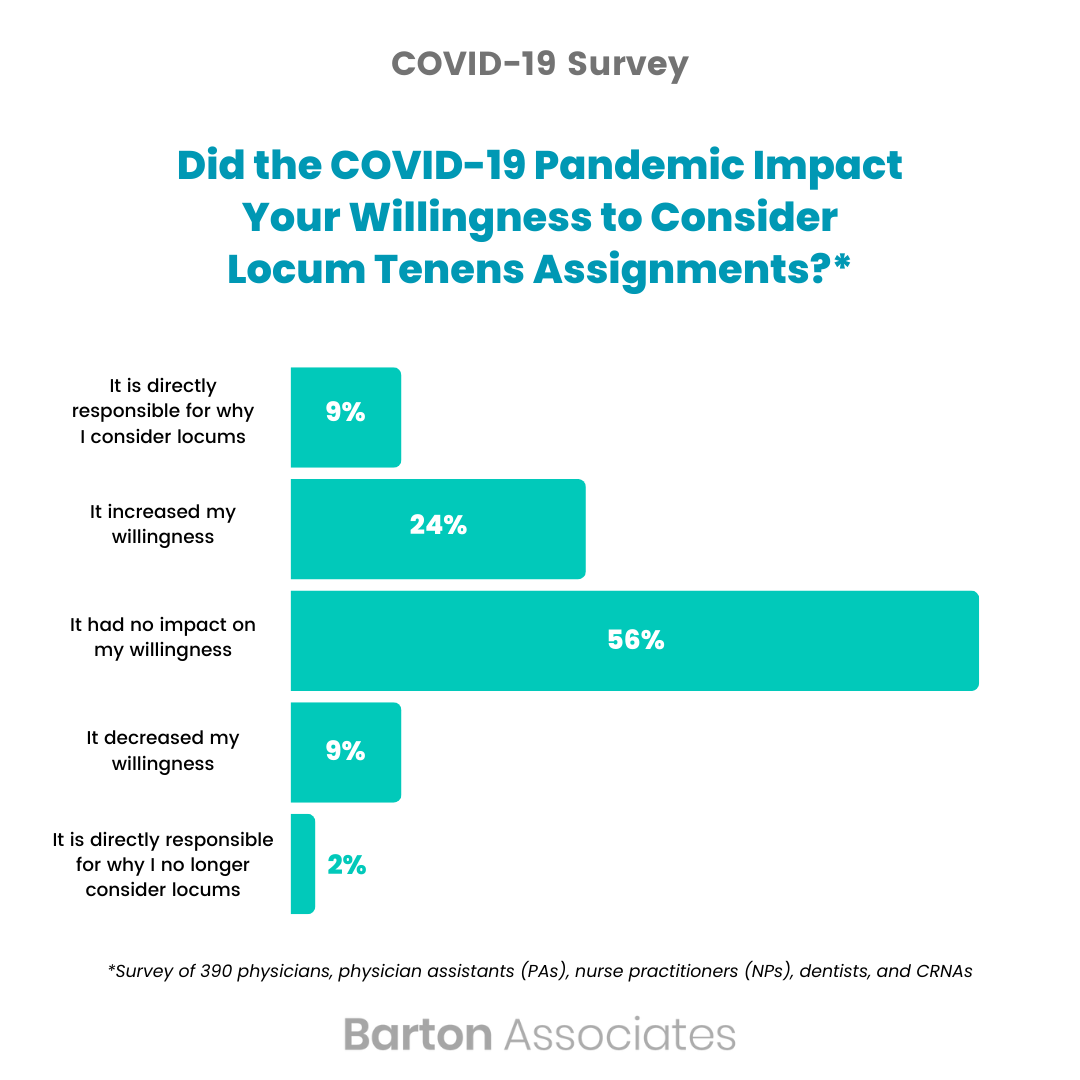Every day across the United States, travel healthcare clinicians and locum tenens providers take temporary assignments in hospitals and other facilities to bridge staffing gaps and ensure continuity of patient care. Due to the nomadic nature of their work, these healthcare professionals offer a unique perspective on the industry than those who work traditional, permanent jobs at health facilities.
We recently surveyed our network of travel, locum tenens, and permanent physicians, nurse practitioners (NPs), physician assistants (PAs), dentists, registered nurses (RNs) and allied health professionals across a wide variety of specialties and found some interesting comparisons—read on to learn more.
Travel Clinicians And Locum Tenens Providers Are Happier Than Permanent Peers
We asked the healthcare professionals in our database to agree or disagree with eight statements about the healthcare industry and their jobs in general. The most striking insight we uncovered is that part- and full-time travel clinicians and locum tenens providers with an opinion are 17% more likely to say they are happy in their current position than their permanent peers.
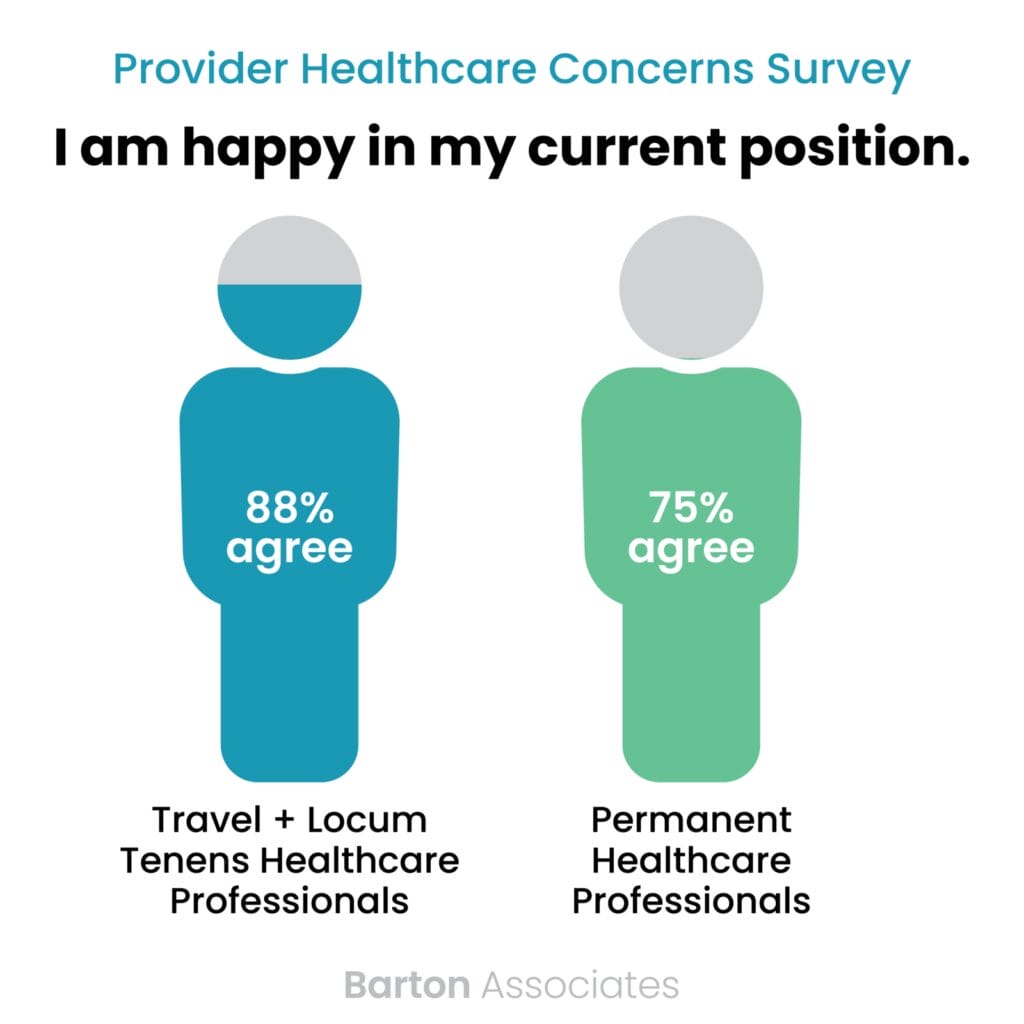
In total, 88% of the 191 travel and locum tenens healthcare professionals with an opinion agreed that they are happy in their current position, compared to 75% of the 301 permanent healthcare professionals with an opinion on the topic who said the same.
Travel Clinicians And Locum Tenens Providers Report Better Work-Life Balance
While we can’t say with absolute certainty why full- and part-time travel clinicians and locum tenens providers are happier in their jobs than permanent healthcare professionals, our survey did uncover that travel clinicians and locums are 32% more likely to agree that their work-life balance is satisfactory than their permanent counterparts.
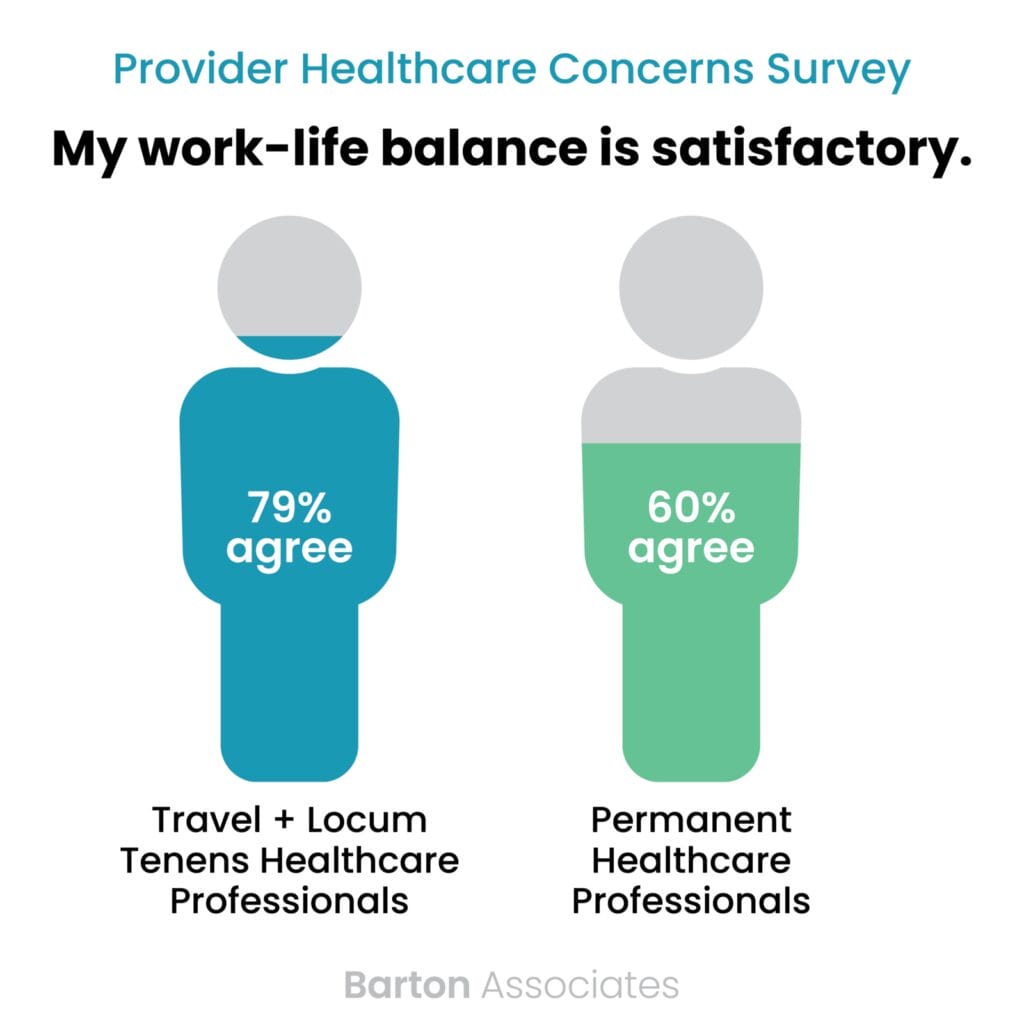
In total, 79% of the 208 travel clinicians and locums with an opinion agreed that their work-life balance is satisfactory, compared to only 60% of the 323 permanent workers who answered the question.
Travel Clinicians And Locum Tenens Providers & Compensation
In addition to reporting better work-life balance, travel clinicians and locum tenens providers were also around 9% more likely to agree they are fairly compensated as a healthcare provider/clinician than their permanent peers.
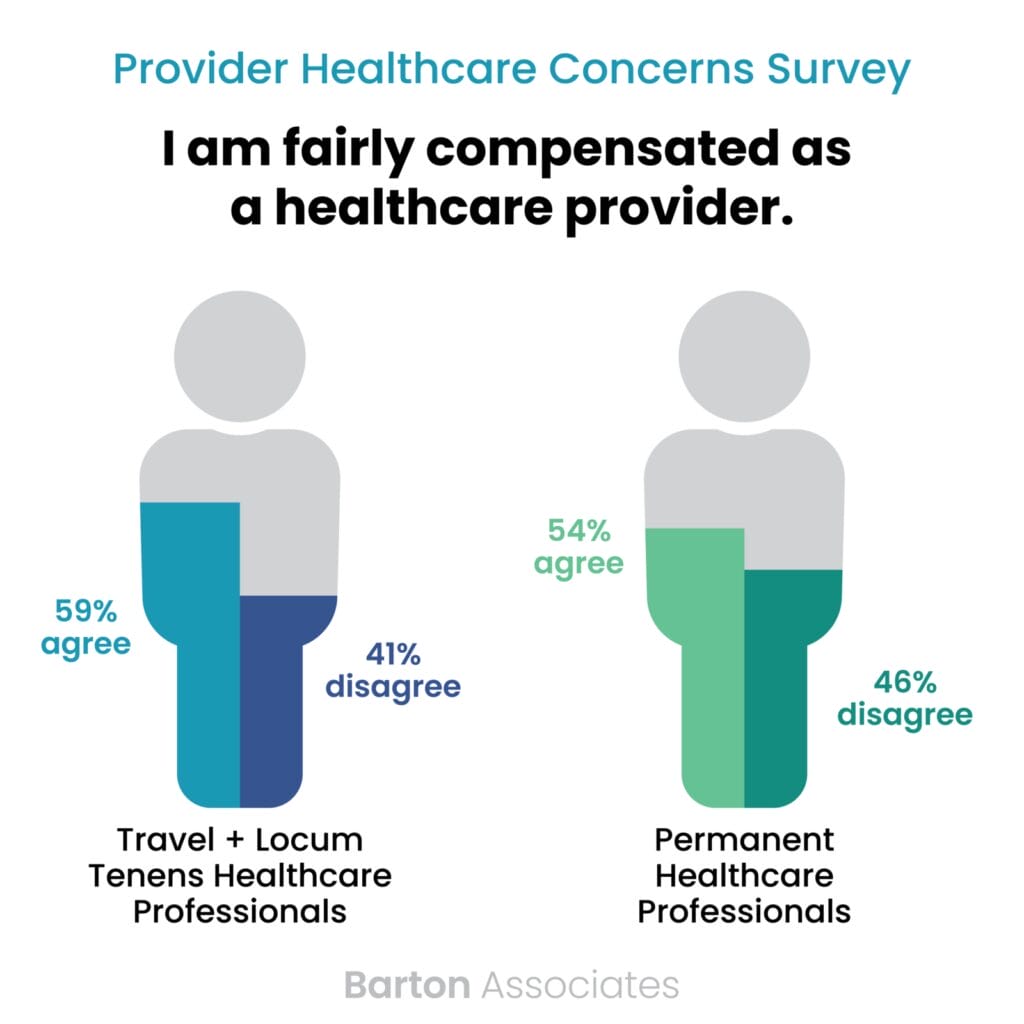
In total, 59% of the 188 travel clinicians and locum tenens providers with an opinion agreed that they are fairly compensated as a healthcare provider/clinician, while 54% of the 321 permanent healthcare professionals with an opinion agreed.
What Travel Clinicians, Locum Tenens Providers, and Permanent Healthcare Professionals Agree On
Not every piece of data we gathered illustrated a difference between travel/locum healthcare professionals and their permanent peers—in fact, these groups agree on a fair amount of topics.
Staffing Levels
In total, 96% of the 644 providers and clinicians with an opinion agreed that they are concerned about whether healthcare facilities can maintain adequate staffing levels in 2024.
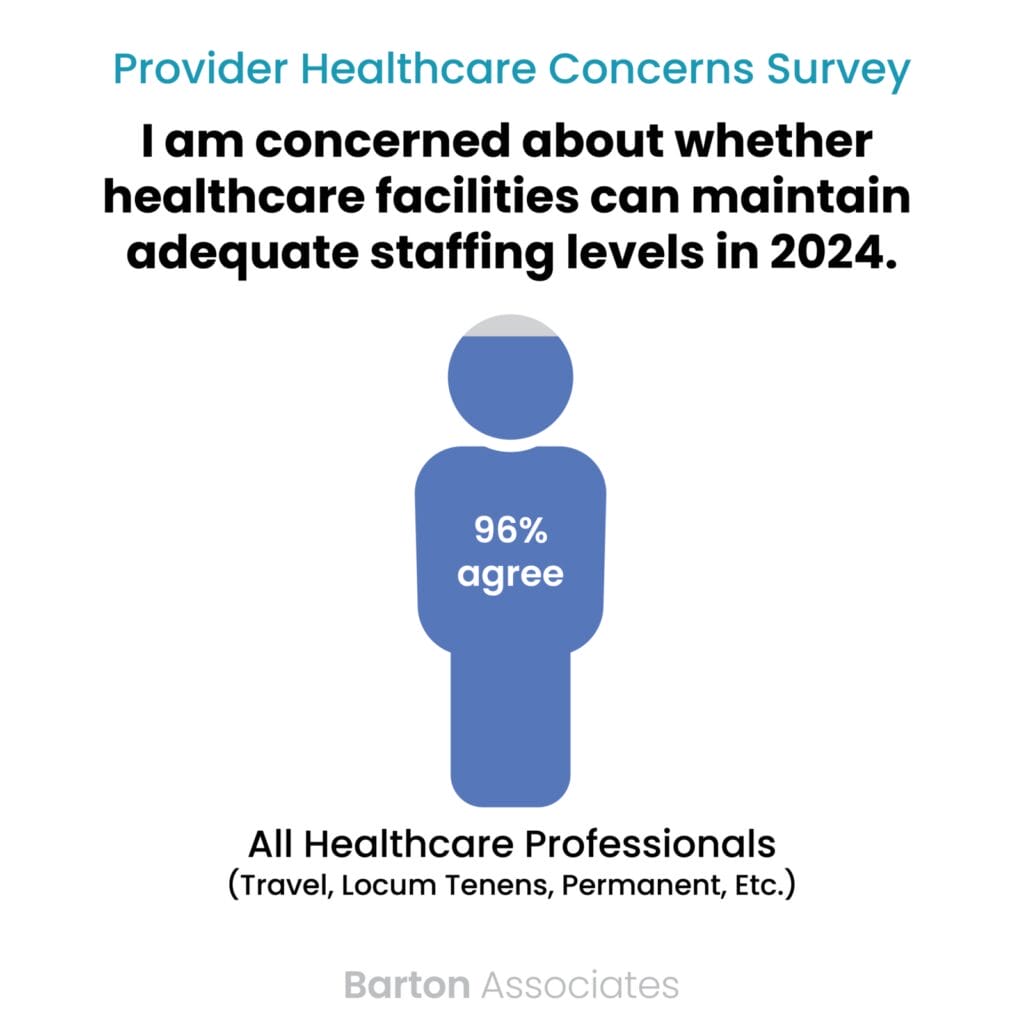
Workload
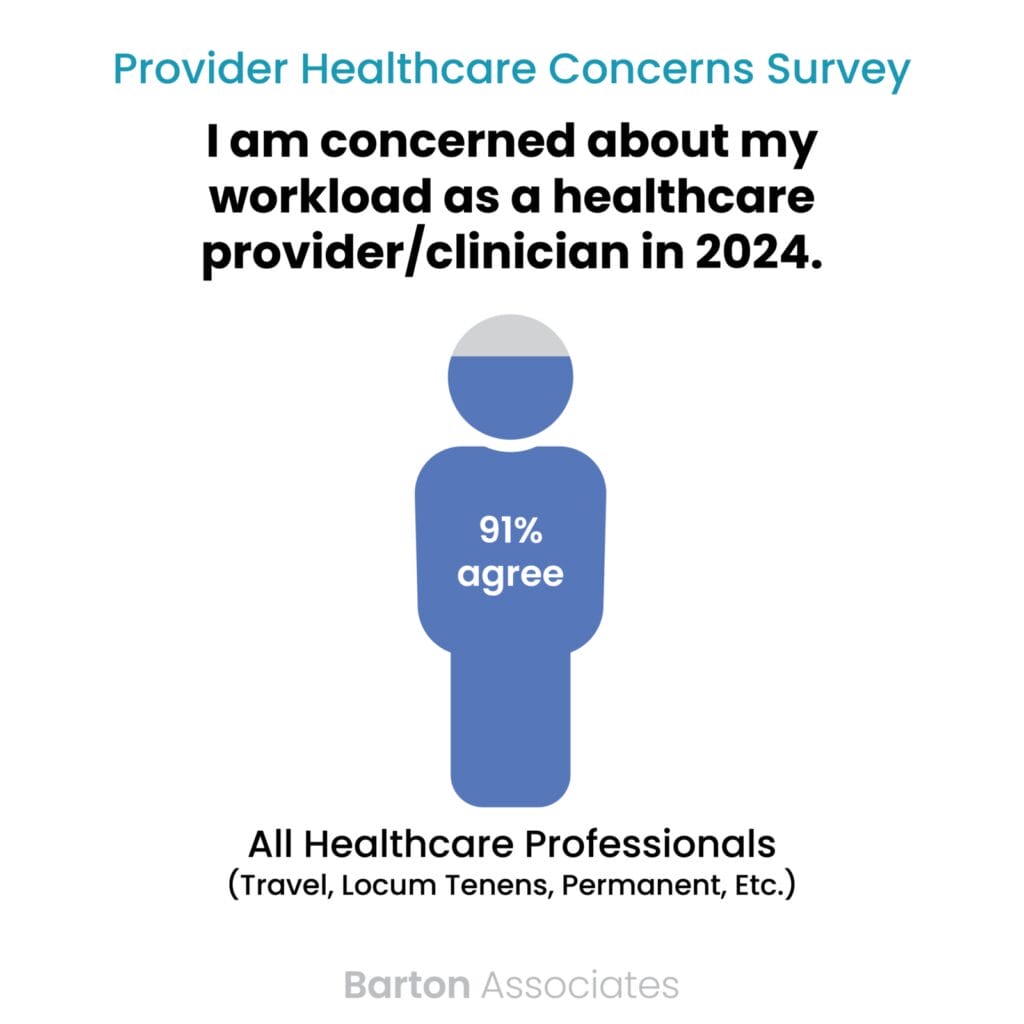
In total, 91% of the 580 providers and clinicians with an opinion agreed that they are concerned about their workload as a healthcare provider/clinician in 2024.
Pay
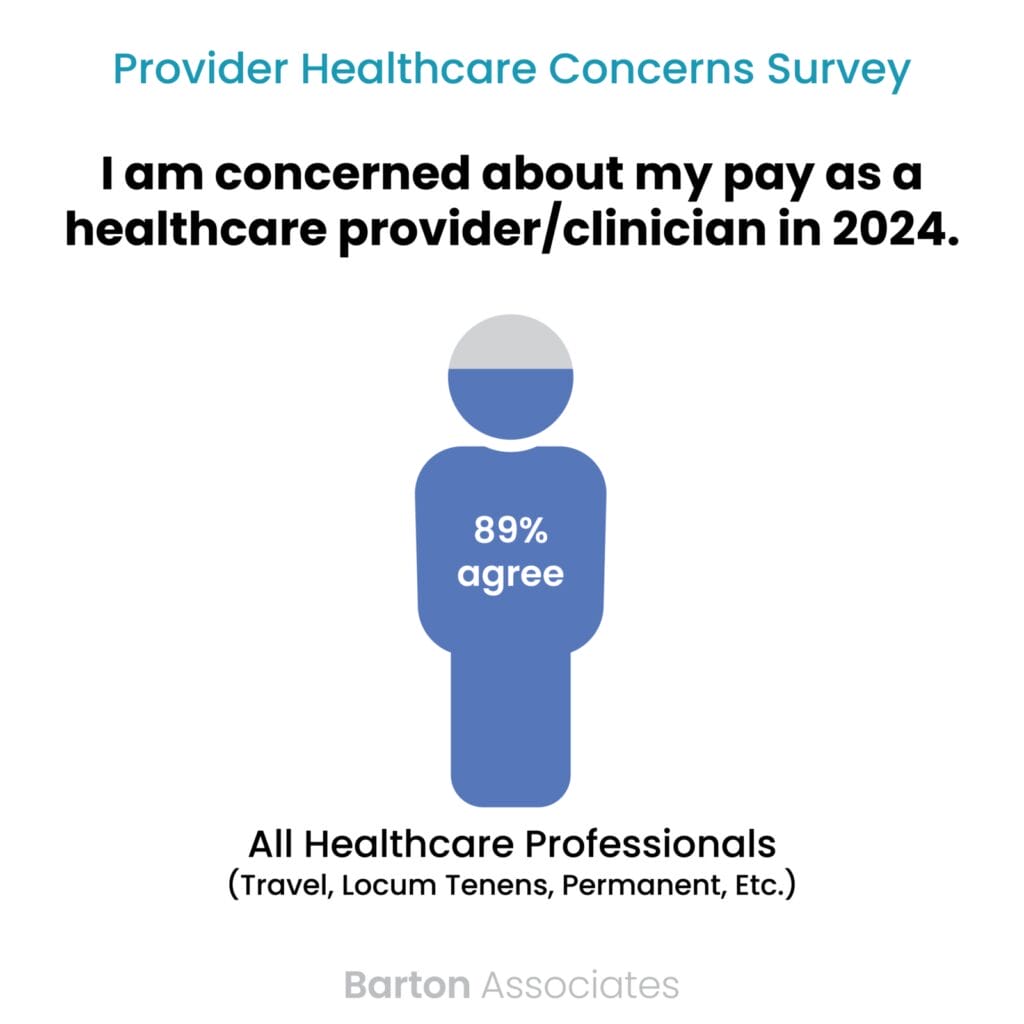
In total, 89% of the 620 providers and clinicians with an opinion agreed that they are concerned about their pay as a healthcare provider/clinician in 2024.
Survey Methodology
Our survey was conducted on SurveyMonkey from November 17 to December 4, 2023 and garnered responses from 1,050 providers and clinicians in BHS’ network. These providers include full- and part-time locum tenens providers, full- and part-time travel clinicians, retired professionals, and professionals in permanent positions aged 18 to 65+.

